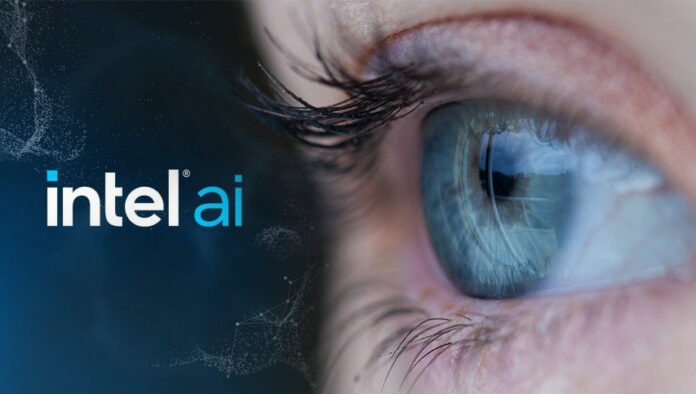Intel’s AI tool screens patients for vision loss
In a country like India that features a low doctor-patient ratio, AI (AI) can enable greater access to expert care from anywhere, with telehealth and robotics applied across inpatient and outpatient environments. Experts say AI will bolster the role of healthcare by assisting in screening, diagnosis, and treatment of diseases thereby improving quality of life and reducing the value burden for patients.
“India features a tremendous opportunity to steer human-centric applications and democratise AI for the planet backed by high skilled talent, technology, vast data availability, and therefore the potential for population-scale AI adoption,” says Prakash Mallya, vice-president and director of Sales, Marketing and Communications Group, Intel India.
Intel has been focusing its efforts towards accelerating AI innovation to deliver transformative healthcare solutions and democratise healthcare access and delivery in India. The company’s portfolio of compute, memory, storage, and networking technologies powers a number of the foremost exciting healthcare and life sciences applications.
The cloud-based AI solution Netra.AI is the latest example of the impact and innovation which will be made possible with Intel technology. the answer uses deep learning to spot retinal conditions during a short span of your time with the accuracy level of human doctors. Netra.AI can accurately identify diabetic retinopathy (DR), greatly reducing the screening burden on vitreoretinal surgeons. Typically, lack of trained retinal specialists in India—especially in remote, rural regions—limits effective screening of asymptomatic patients. This leads to patients presenting late with advanced diabetic disease .
To address this challenge, Sankara Eye Foundation collaborated with Singapore-based deep learning AI healthcare startup Leben Care to develop and implement Netra.AI, a comprehensive retina risk assessment software-as-a-service platform in India. the answer analyses images from portable, technician-operated fundus camera devices, for immediate results of referable DR grading via a cloud-based web portal. It uses cutting-edge AI algorithms, developed together with leading retina experts, with a four-step deep convolutional neural network (DCNN). This neural network helps in detecting DR stage and annotating lesions supported pixel density within the fundus images. the answer are often expanded to other retinal conditions and glaucoma, helping to scale back the screening burden on healthcare specialists and focus key resources on patients who need immediate care and intervention.
Netra.AI is optimised for Intel Xeon Scalable processors with built-in Intel Deep Learning Boost and Intel Advanced Vector Extension 512 acceleration. Intel architecture delivers strong data protection, fast processing of huge data volumes and repair flexibility. the answer provides access to Intel-optimised images for TensorFlow, Apache MXNet and PyTorch, additionally to Intel performance libraries, to reinforce application performance.
The solution doesn’t replace ophthalmologists or retinal surgeons. However, through the better accessibility of software and their integration with more portable fundus camera devices, which may be operated by a technician alone, this technology increases access for even a non-trained health care provider to screen for DR.
“Technology and AI are democratising healthcare access, especially in screening for ailments. Our team at Sankara Eye Foundation has focused on our vision to eliminate needless blindness from India. The present solution, Netra.AI – where we had a key role within the design and development with Leben Care – uses robust AI-enabled platforms from Intel. it’s an example of how likeminded collaborators can create meaningful and impactful solutions for various challenges that face humanity,” says Kaushik Murali, president of Medical Administration, Quality & Education, Sankara Eye Foundation India.
Netra.AI may be a powerful tool for screening retinal illnesses in large populations with limited infrastructure, resources, and an overburdened healthcare system, claim Intel officials. The answer delivers excellent sensitivity and specificity, 99.7% and 98.5% respectively, for detection of any DR. It has been demonstrated in India and in other countries in Asia and Africa.







